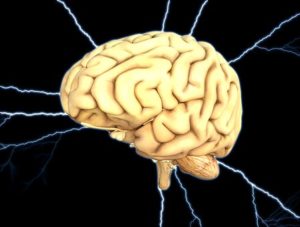
Some religions, particularly Christianity and Islam, have the practice of fasting. To them, Fasting is an act required for spiritual growth and to gain blessings. Science has also delved into the fasting matter and lots of research works have shown that it has great benefits for the physical body and general well-being; if applied well.
Fasting itself is an abstinence from food and or drink for a period of time. A person is said to have fasted when he or she has not eaten for 8-12 hours (of course, those who embark on spiritual fasting say that if you abstain from food without purposefully doing it for God and without the necessary prayers and scripture reading, it cannot be classified as a spiritual fast.)
Fasting happens to be one of the current health trends in the world. And while spiritual fasting is looked upon as a time of abstinence, modern day fad fasting is described as a dietary pattern.
Intermittent fasting is the most popular of the different types of fasting health conscious people focus on these days.
Interestingly, even though it seems like a fad food pattern, science hass identified a number of ways evidence-based ways that fasting, particularly intermittent fasting, can improve health:
- You can achieve Weight Loss

Many people embark on fasting with the hope of losing weight. Indeed weight loss can be achieved because fasting involves a shorter time to take in calories, therefore, there is an upset in the energy balance such that intake is lower than expenditure. In the produce, weight loss might occur.
Also, fasting affects your hormones such that your metabolism increases. However, note that if you overeat or consume a massive amount of food during the short time that you can eat, you do not get the effect.
- You Can Improve Mental Health

Studies have shown that fasting can improve alertness, mood and possibly help reduce some symptoms of depression.
- Your Insulin Sensitivity improves

Insulin resistance is when your body does not respond well to the insulin hormone. Diabetes can occur. Insulin is very much related to your blood sugar level. When you fast, your body does not produce as much insulin. So this low insulin status makes fat stored more available to your body for breakdown and reduces drastically how much your insulin levels are up. It reduces insulin resistance.
- It May Prolong Your Life

Long and healthy life is something many people want. Researches show that fasting may guide you on this path. Fasting improves the way your brain ages and helps prevent neurodegenerative diseases.
- It reduces Inflammation

Studies show that inflammation leads to the rise of many chronic diseases such as diabetes, heart diseases and cancer. Many bad diets cause increase inflammation in the body. Eating healthy foods and Fasting, on the other hand, help to reduce inflammation.
So, you have 5 reasons to embark on fasting. However, while fasting is great, not everyone should fast. If you have a significant health problem or situation like diabetes, infertility (especially for women), pregnant and breastfeeding, you need to inform your doctor and dietitian before you embark on this.
In a Nutshell
Fasting is very beneficial to your health. There is a healthy way to fast and it can also be dangerous too. You have to learn how to fast in a healthy way and a way in which the benefits you derive can be sustainable.
It is unhealthy if you fast and then go back to a life of indulgence destroying all your hard work. In my next post, I will describe how to fast in a healthy way. Stay tuned.
Don’t forget to eat better and live better.
Notes/References:
Trussardi Fayh, A., Lopes, A., Fernandes, P., Reischak-Oliveira, A., & Friedman, R. (2013). Impact of weight loss with or without exercise on abdominal fat and insulin resistance in obese individuals: A randomised clinical trial. British Journal of Nutrition, 110(3), 486-492. doi:10.1017/S0007114512005442
M.N. Harvie, M. Pegington, M.P. Mattson, J. Frystyk, B. Dillon, G. Evans, J. Cuzick, S.A. Jebb, B. Martin, R.G. Cutler, et al.The effects of intermittent or continuous energy restriction on weight loss and metabolic disease risk markers: a randomized trial in young overweight women. Int. J. Obes. (Lond), 35 (2011), pp. 714-727
Harris, L.et al.(2018)Intermittentfasting interventionsfortreatment of overweight and obesity in adults: a systematic review and metaanalysis. JBI Database Syst. Rev. Implement. Rep. 16, 507–547
Aksungar F, B, Topkaya A, E, Akyildiz M, Interleukin-6, C-Reactive Protein and Biochemical Parameters during Prolonged Intermittent Fasting. Ann Nutr Metab 2007;51:88-95
Goodrick C, L, Ingram D, K, Reynolds M, A, Freeman J, R, Cider N, L, Effects of Intermittent Feeding Upon Growth and Life Span in Rats. Gerontology 1982;28:233-241



Thanks for the information.👌
[…] Leptin, which is a hormone that tells your brain that food is enough, becomes more sensitive to your body. Your behavior changes too, some studies have shown that you become more alert and mental acuity increases. See here for more benefits of fasting. […]